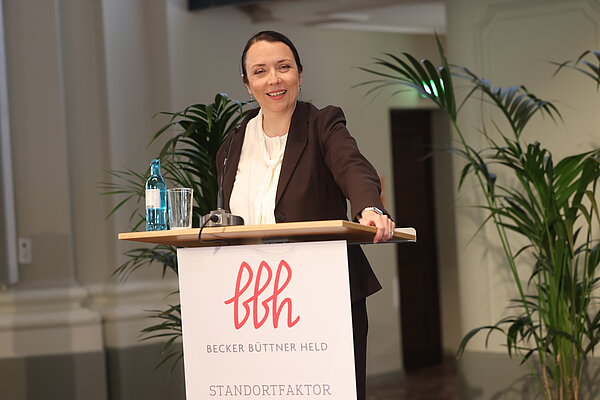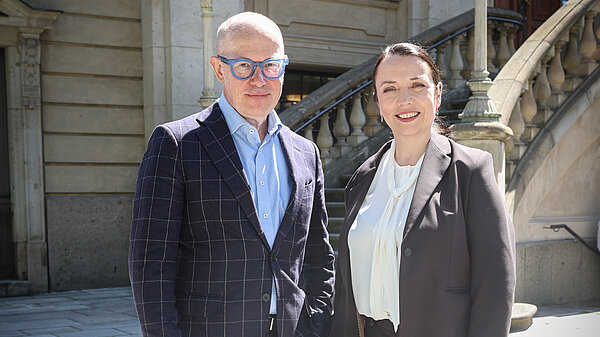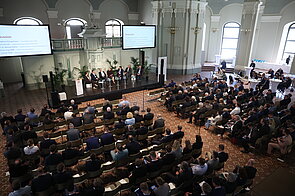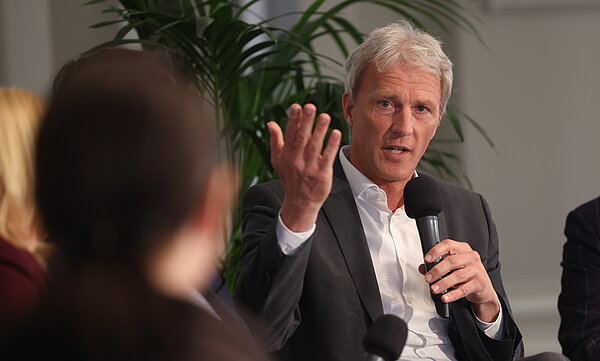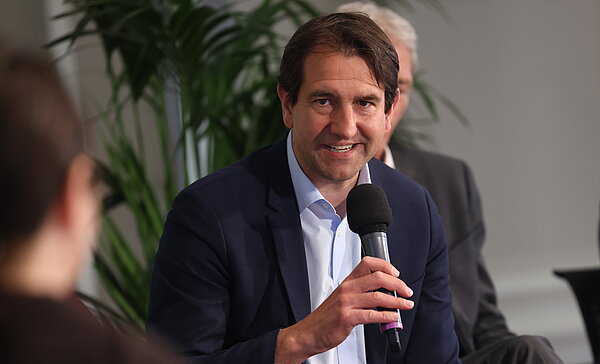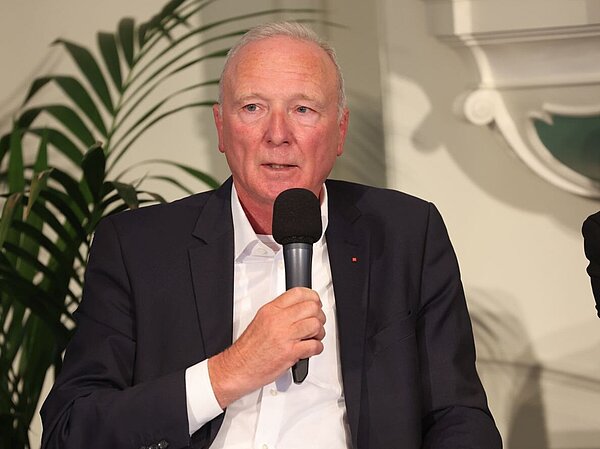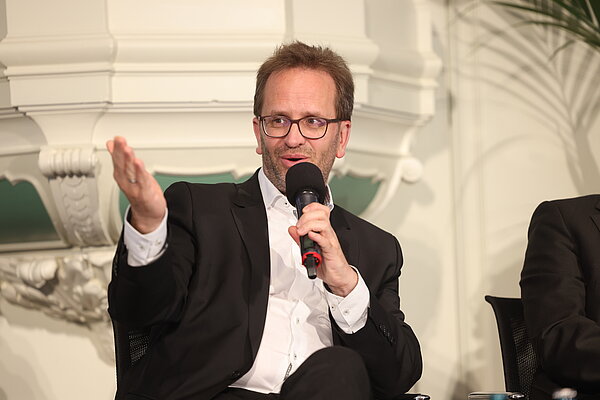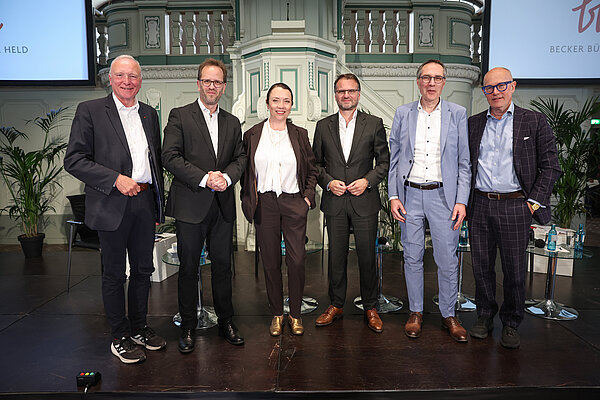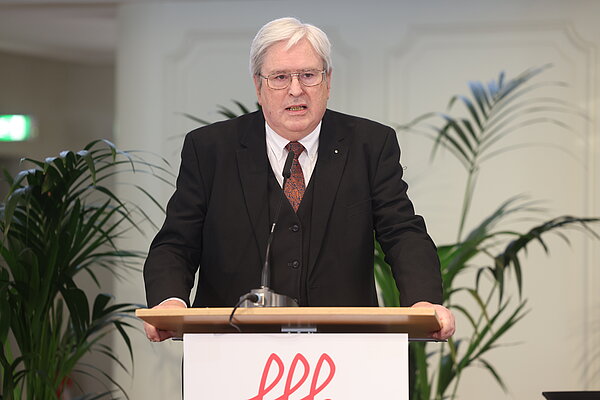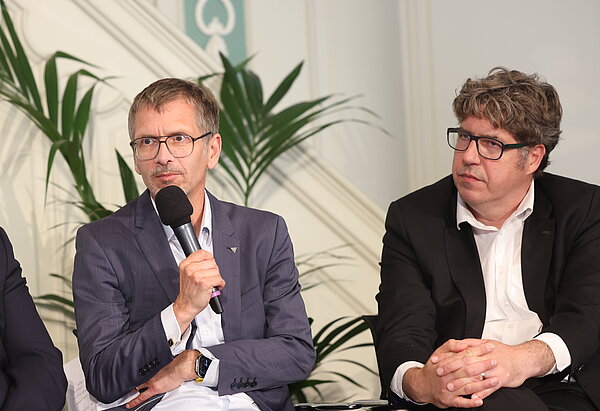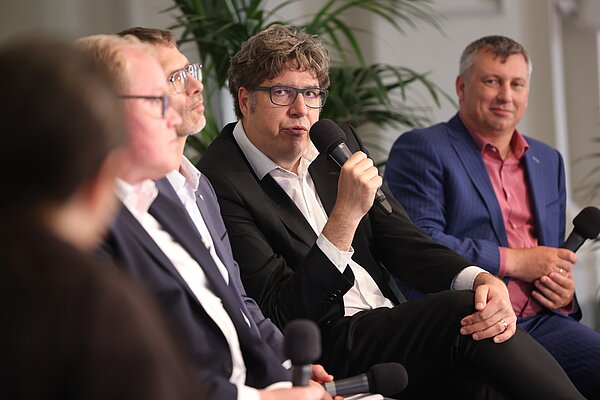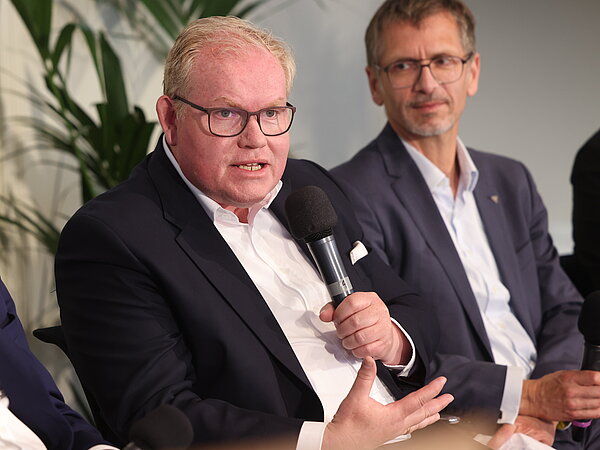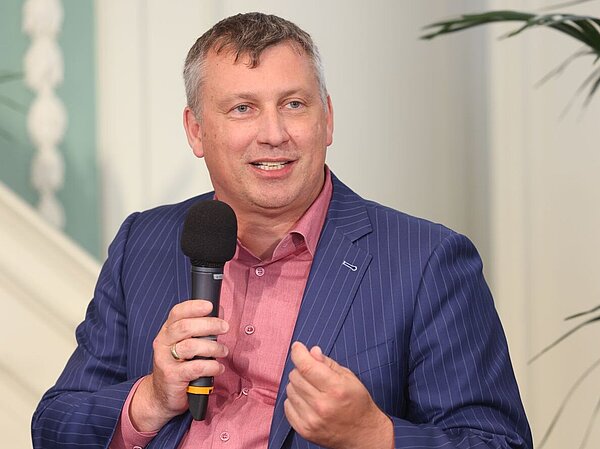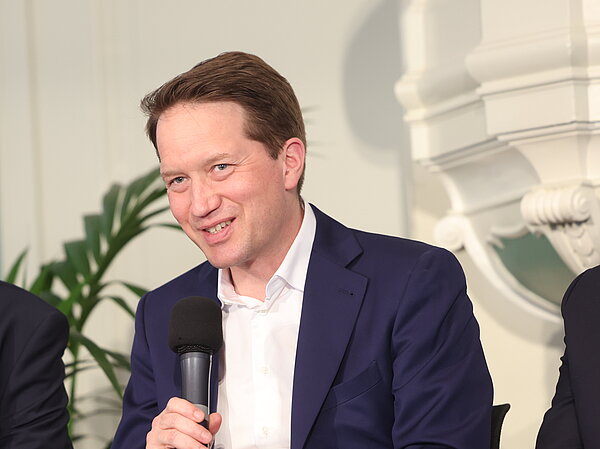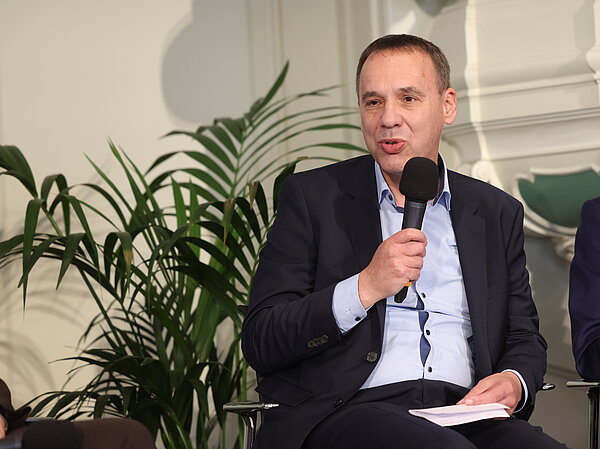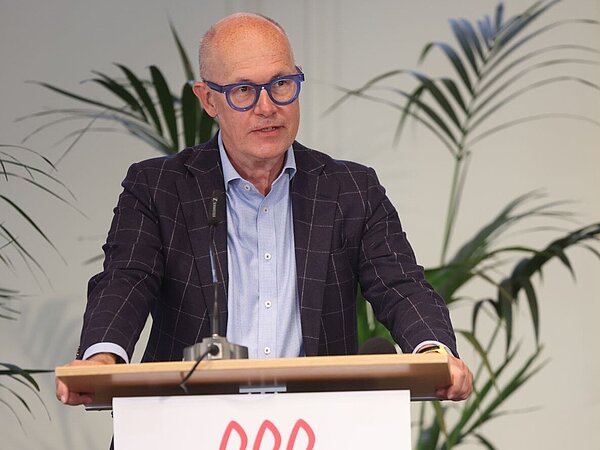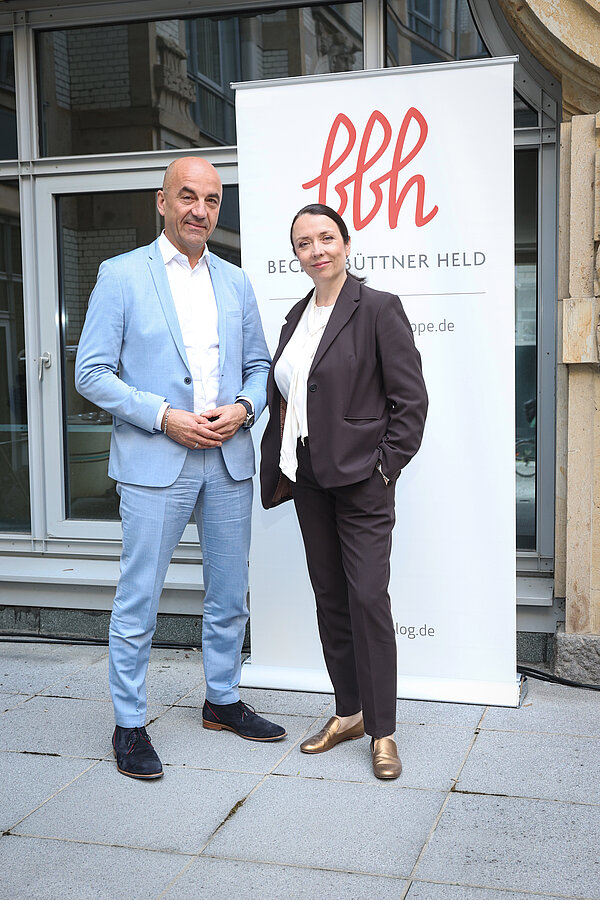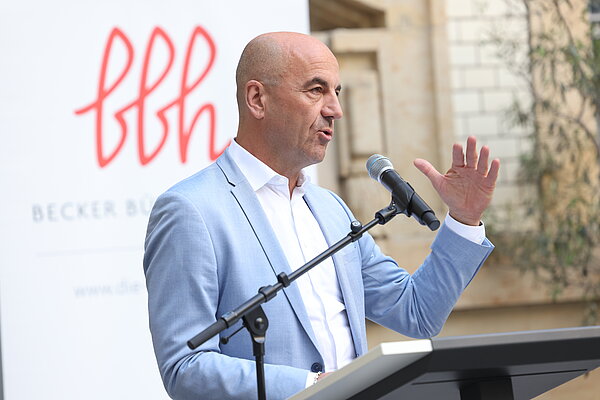BBH’S ANNUAL CONFERENCE 2025
This topic fits in well with the still new government which has made competitiveness a high priority in its coalition agreement. By setting this objective, the government has put itself under pressure and now has to deliver. One thing is certain, though: Energy is a location factor. Is it secure? Is it affordable? Is it green? These are the questions that investors and companies are asking themselves.
What role do renewable energy sources play, where do we stand with the grid expansion right now, how much may it cost, who is footing the bill, and which areas are feeling the greatest impact of energy prices? Do we need subsidies to drive the transformation and the energy transition, or simply less red tape and more dynamism and innovation in Germany? These are the underlying questions that we need to address together.
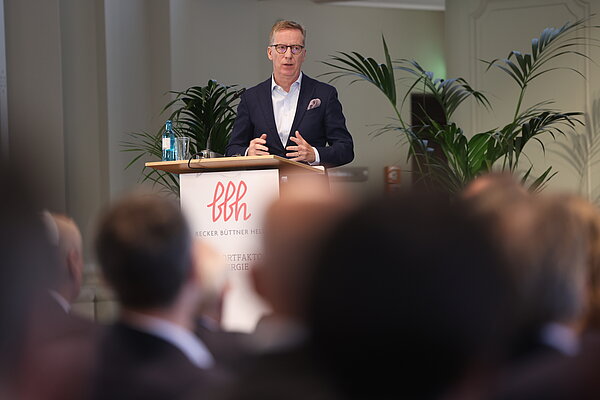
Following the opening address by Prof. Dr. Ines Zenke, the conference began with a keynote speech delivered by Prof. Dr. Michael Hüther. The director of the German Economic Institute (IW) in Cologne emphasised once again that we are not experiencing a structural crisis, but rather a turning point in history. He finds that the German economy continues to stagnate. However, he believes that we should not abandon the fundamental consensus on climate policy. According to him, we rather need to create better investment conditions, enhance productivity and promote key technologies. He therefore looks to the new government for optimism and a readiness to extend credit.
Dr. Matthias Dümpelmann, managing director of 8KU GmbH agreed. “We were so pleased with the availability of energy that we have not invested in the infrastructure for years,” he said. According to him, generational equity is now a key issue in financing. Heike Freimuth, who represents the European Investment Bank in Germany, pointed out that the EIB has doubled its investments in energy projects in Germany. The money is now being distributed more widely, increasingly reaching smaller municipalities. For energy must be generated where it is consumed.
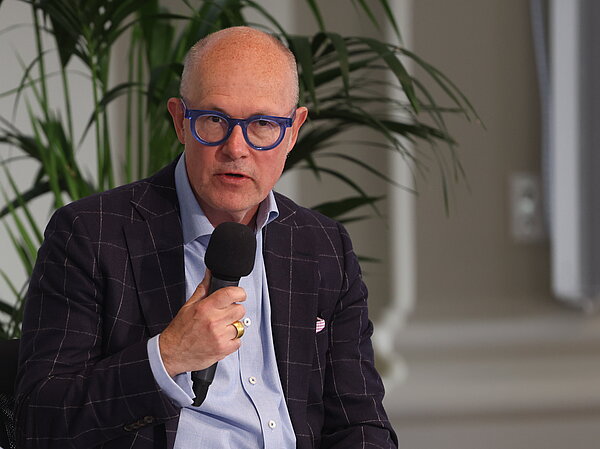
BBH partner Prof. Dr. Christian Theobald addressed the phenomenon that the Federal Network Agency is no longer only applying the rules (for grid operators), but also setting them itself in advance. To him this constitutes a new era in the energy industry.
In his speech, Dr. Carsten Rolle, head of energy and climate policy at the Federation of German Industries (Bundesverband der deutschen Industrie e.V. – BDI) in Cologne, returned to the fundamental principles of the market economy, which are once again being given more importance, for example in the context of the monitoring provisions of the coalition agreement. As regards the new EU Emissions Trading System ETS2, he is of the opinion that it should act as a price signal and not lead to price spikes.
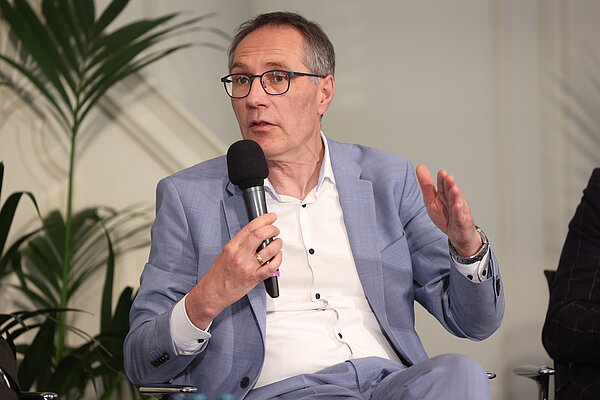
The second panel focused on security of supply and the power plant strategy. Sascha Müller-Kraenner, executive director of Environmental Action Germany (Deutsche Umwelthilfe e.V. – DUH), posed the question as to why one would want to build 20 gigawatts of gas-fired power plants when there are alternatives such as biogas power plants and flexible battery storage systems. As regards monitoring, he calls for not only a power plant forecast, but also a gas demand forecast.
Bernd Westphal, member of the Bundestag and energy expert of the SPD parliamentary group, believes that, due to concerns about security of supply, a combination with natural gas power plants is on the horizon. According to him, energy-intensive industries such as nitrogen and copper production are particularly in need of reliable energy sources.
Klaus Müller, president of the Federal Network Agency, echoed this view, stating that “the energy transition will not gain public acceptance if security of supply is not guaranteed”. Once the draft Power Plant Safety Act is available, he would like to ensure on behalf of the Federal Network Agency that the tenders are carried out smoothly.
Andreas Feicht, chairman of the executive board of Rheinenergie in Cologne, is convinced: “Germany must demonstrate that it is capable of reaching this objective – yet regulatory requirements make this considerably more challenging.”
Christian Theobald confirmed that grid operators are under growing regulatory pressure, which poses major challenges for them. “The investment requirements driven by the energy transition call for greater regulatory stability, not less,” he stated. According to him this is especially true when profit margins are declining.
At the end of the panel, Klaus Müller emphasised: “The Federal Network Agency wants to ensure that energy-intensive industrial companies are exempted from grid charges so that they remain competitive and stay in Germany.”
The third panel continued the discussion, focusing primarily on the question of financing.
The next keynote speech was delivered by Prof. Dr.-Ing. Jörg Steinbach, who served as Brandenburg’s Minister for Economic Affairs, Labour and Energy until the end of last year. He emphasised that the European idea should be brought to the fore and criticism from Brussels should be taken into account, for example in relation to the power plant strategy. He believes that investing in innovative products is essential to strengthen the location and enhance its appeal to incoming businesses.
Dr. Gunar Hering, chairman of the executive board of ENERTRAG, emphasised that we are already seeing dramatic cost reductions in offshore and solar thermal energy. According to him, we ought to stay on top of the issue and automate permitting procedures e.g. for the development of the hydrogen economy. Otherwise, we would remain stuck in the Stone Age.
Dr. Peter Güllmann, spokesperson of the executive board of Bank im Bistum Essen eG, pointed out that the bank often grants loans for energy projects if they are capable of servicing their debt and comply with the ESG criteria. The Bundesbank and the ECB would have to reconsider the equity capital requirement, which would make loans cheaper.
Finally, Dr. Dirk Biermann, executive director of operations at the grid operator 50Hertz Transmission GmbH, summarised: “We are not questioning the objective of expanding renewable energy sources. We are not questioning the goal of achieving climate neutrality by 2045. However, we must be smart about how we pursue this.”
In his closing remarks, Christian Theobald summed up the event, saying: “There will be no energy transition without a regulatory transition”. He then thanked the guests for their trust in the BBH group and invited everyone to the conference evening in the art nouveau courtyard of the BBH group’s offices at Magazinstraße.
The evening event was opened by Prof. Dr. Ines Zenke, who warmly welcomed the guests and introduced Stefan Dohler’s keynote speech. The president of BDEW e.V. (German Association of Energy and Water Industries) highlighted the record expansion of photovoltaics and onshore wind, mentioned forward-looking hydrogen projects and pointed to progress made in the heating sector.
In this context, he warned against focusing exclusively on “easing the burden on the grid” and advocated the targeted further development of existing plans for power plants from the previous legislative period. He emphasised the need for flexible funding conditions and a clearly defined planning.
Afterwards, many of the participants enjoyed the warm summer evening engaging in stimulating conversations and networking.

